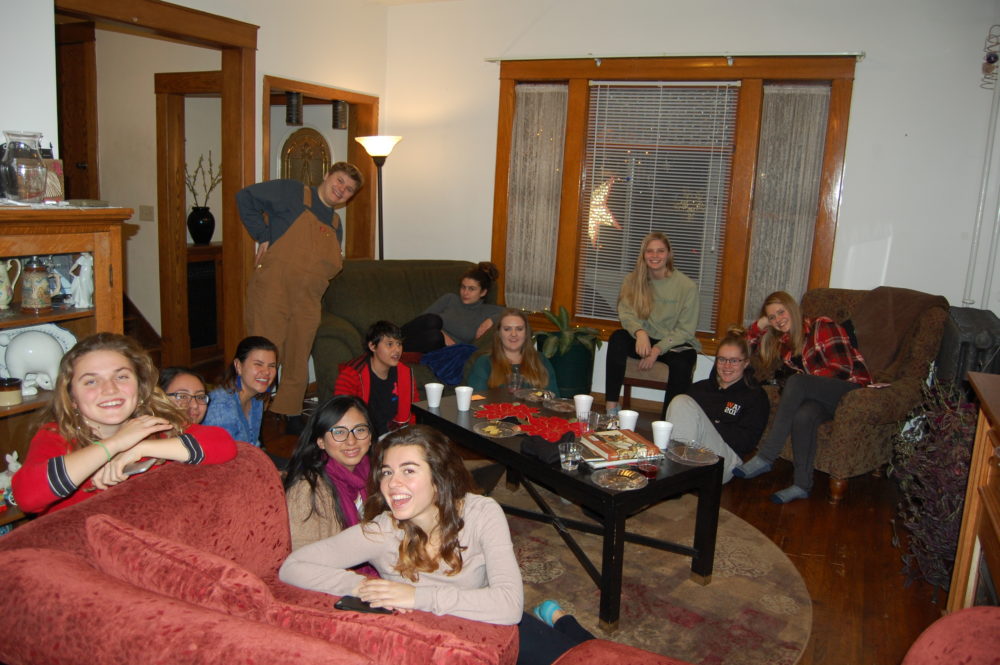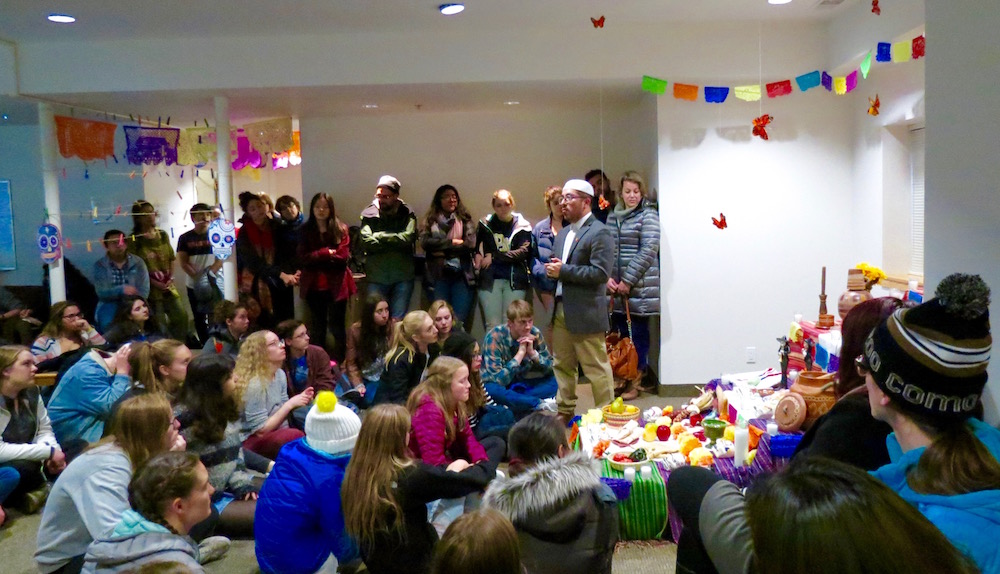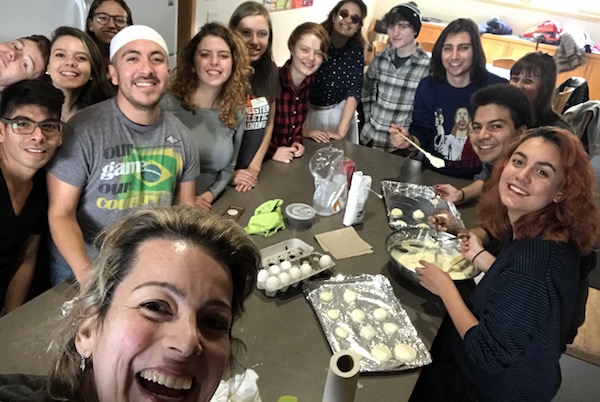

Spanish and Portuguese
Fluency in language and culture opens the world to you.
Contact
Spanish & PortugueseHumanities Building, Room 219 651-696-6395
clozano@macalester.edu
facebook instagram
Knowledge reaches far beyond practical skills.
Have you always dreamed of reading Don Quijote in the original Spanish? Want to know how Latin evolved into Spanish? Understand how dialects vary from Spain to South America? Support the initiatives of Spanish-speaking communities in the Twin Cities? These are the kinds of learning journeys you can pursue as a student of Spanish or Portuguese at Macalester.
It’s about more than becoming proficient in another language; our courses encompass literary studies, linguistics, and cultural studies, helping you weave yourself thoroughly into the rich fabric of the Spanish and Portuguese-speaking worlds. Plus, the critical thinking skills you’ll acquire will help prepare you for countless professions. Our students go on to graduate programs, law school, careers in immigration services, medical professions, translation, global business, and much, much more.
Why Macalester? Follow opportunity beyond borders.
More than 800 million people speak Spanish or Portuguese all around the world. At Macalester, you can choose a study-away experience from a variety of programs in Spanish- and Portuguese-speaking countries. And the diverse population right here in the Twin Cities will give you many chances to practice your language skills and learn more about Spanish and Portuguese life and culture.
Life after Macalester
-
Recent Employers - Capitala Investment Advisors – Charlotte, NC
- Casa de Esperanza
- College Possible Minnesota
- Crossroads from Women – Alburquerque NM
- Ending Community Homelessness Coalition (ECHO)
- EPIK (English Program in Korea)
- FHI 360
- Fulbright
- Goby
- Habeas Corpus Resource Center
- Hennepin County
- Jardin Magico
- Keyot Consulting
- Lutheran Campus Ministry at Yale
- Minnesota Promise Fellows
- Minnesota Public Radio
- Montessori Training Center of Minnesota/St. Kate’s – St. Paul
- Old Navy
- Peace Corps
- Salerno for Congress
- Seward Montessori
- The Bortel Firm, LLC
- The Fulbright Program
- University of Minnesota
- University of St Thomas
- Western University of Health Sciences, COMP-NW
- Yspaniola
-
Recent Graduate Schools - Medical College of Wisconsin
- Purdue University
- Temple University
- Tufts University
- University of Chicago
- University of Minnesota/Twin Cities
- University of St. Thomas
- University of Washington
- Western University of Health Sciences
Spanish in the cities
See theater productions at places such as Teatro del Pueblo, the Minnesota History Center, and Pangea Theatre.
200+
Intern at one of the 200 plus sites near campus, including the Adams Spanish Immersion School, Casa de Esperanza, and Guadalupe Alternative Programs.
Engage in projects with Hiawatha Academies, Centro Tyrone Guzman, Advocates for Human Rights through your coursework.
Join the community
- Live in the Casa Hispana. Enjoy common meals and host events that bring the whole community together, all year long.
- Speaker series. Listen to and engage with visiting researchers and speakers on timely and relevant topics.
- Welcome parties, Holiday parties, our Day of the Dead Celebration, Graduation parties. We’re always looking for and finding reasons to break bread together.
- Tutoring office. Come meet our tutors and work on your Spanish skills in a welcoming and inclusive atmosphere.



